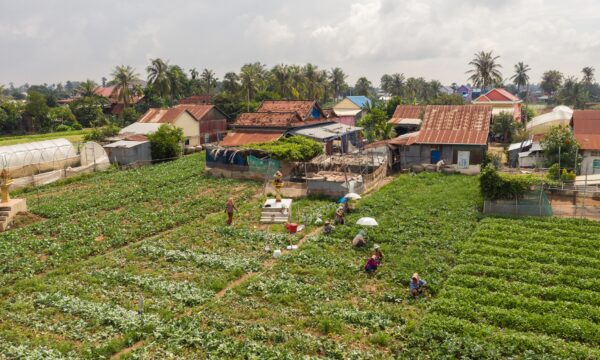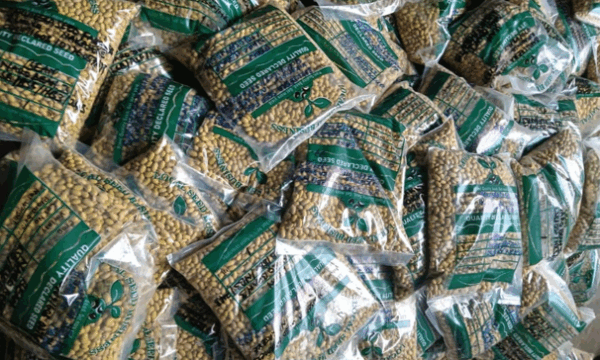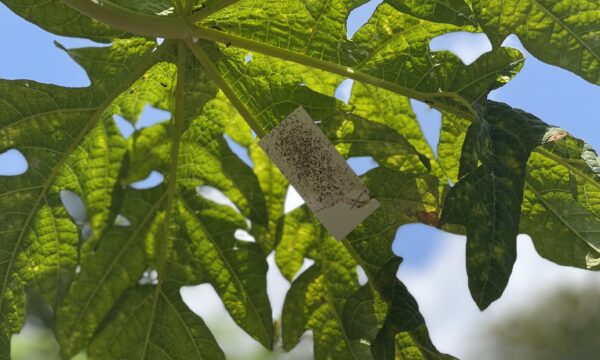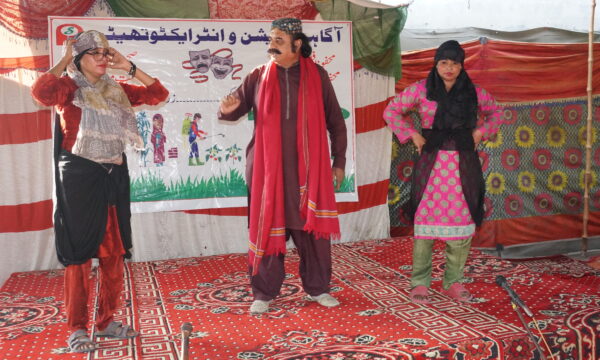“On a planet with sufficient food for all, a billion people go hungry.”
The Commission on Sustainable Agriculture and Climate Change
As the global population grows, it is not just one factor that threatens food security but several interconnected threats that will continue to make it difficult to produce enough food for everyone. The combination of population growth, climate change and inefficient use of resources will continue to pressurise the food system, and a concerted effort will have to be made to tackle these issues. A new report from the Commission on Sustainable Agriculture and Climate Change details the actions that will need to be co-ordinated globally to achieve food security as the climate changes.
In their report, the Commission recommends several steps towards achieving a global population that is healthier and more resilient to sudden changes in environmental conditions. They have also highlighted a number of regions where action is already being taken, which demonstrates that their targets are attainable. Some of their key recommendations are:
-
Increase global investment in sustainable agriculture

Increased resilience to weather variability will be required in agriculture as the climate changes © International Rice Research Institute (www.irri.org)
Further investment is required in agriculture, right down to smallholder farmers who can be helped by being educated in how to farm in a sustainable way. China has made a significant investment in its agricultural research and development, which has led to the introduction of new technologies such as water-saving irrigation in many rural areas.
-
Build mitigation and adaptation to climate change into global and national policies
As a country that faces issues of large-scale deforestation, Brazil has implemented policies to reduce the amount of illegal logging through satellite monitoring, and to reduce the amount of emissions created by forestry and agriculture.
-
Sustainable agricultural intensification
‘Sustainable intensification’ may sound like an oxymoron but the future of agriculture will require an increase in the productivity of land whilst reducing greenhouse gas emissions. Plantwise plant clinics help farmers to reduce crop losses by identifying pests and diseases that impact crop yield, and give advice on how to treat these pests, therefore helping farmers to get the most out of their land. Vietnam’s use of Integrated Crop Management has helped farmers to reduce the amount of fertilizers they use, and therefore lowered methane and nitrous dioxide emissions.
-
Help those most vulnerable to climate change and food insecurity
The development of rapid relief funds will help communities recover following environmental catastrophes and food crises. In Australia, climate predictions and forecasts of climatic events such as the El Niño Southern Oscillation are helping farmers to adapt their farming practices to changes in climate.
-
Address food consumption/food availability imbalance
With 0.9 billion people undernourished and 1.5 billion people over the age of 20 overweight, it is obvious that there is a dramatic imbalance in nutrition and food supply. Education in nutrition needs to be given, and food access to those who need it should be improved.
-
Reduce food loss and waste
Waste can be reduced at all points along the food production chain with simple steps such as increasing storage facilities for times when there is excess supply of food. In the UK there are campaigns to educate the public on reducing domestic food waste.
-
Improve shared information
An improved ability to track changes in land use and food production, and to share this information between food markets, will allow markets to adapt to availability of resources and help policy makers target the areas of agriculture that need most attention.
This report has been published before the UN climate conference, which will be held in Durban, South Africa at the end of this month. The authors hope that policy makers will take note of their recommendations and give agriculture higher priority in future meetings.
Source: Beddington J, Asaduzzaman M, Fernandez A, Clark M, Guillou M, Jahn M, Erda L, Mamo T, Van Bo N, Nobre CA, Scholes R, Sharma R, Wakhungu J. 2011. Achieving food security in the face of climate change: Summary for policy makers from the Commission on Sustainable Agriculture and Climate Change. CGIAR Research Program on Climate Change, Agriculture and Food Security (CCAFS). Copenhagen, Denmark. Available online at: www.ccafs.cgiar.org/commission.
1 Comment
Leave a Reply
Related News & Blogs
The role of soil health in sustainable agriculture
Previously, we have discussed the importance of soil health for agriculture, highlighting its threats and outlining protection strategies. In this blog, we dig deeper into the role of soil health in sustainable agriculture and explore its long-term ben…
18 June 2025







Global warming has become perhaps the most complicated issue facing world leaders. Warnings from the scientific community are becoming louder, as an increasing body of science points to rising dangers from the ongoing buildup of human-related greenhouse gases — produced mainly by the burning of fossil fuels and forests..
Our new webpage
<'http://www.prettygoddess.com/